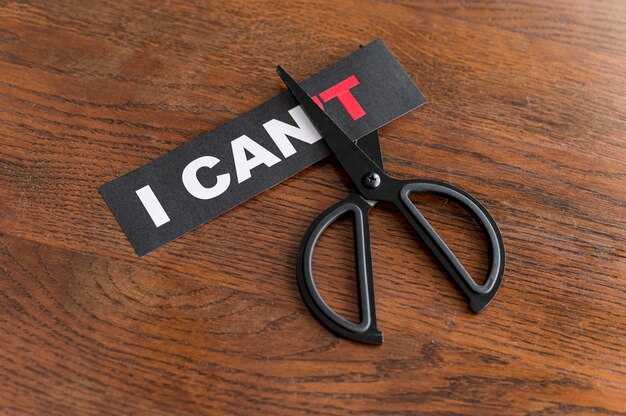Have you noticed that in most relationships one person tends to be the more self-reliant partner? If you’re unsure which side that is in your relationship, chances are it’s you. That doesn’t make you a bad person — in many ways independence is healthy. The real problem arises when people lack any independence at all; those who cannot live satisfying lives on their own often expect their partner to meet every need, which is both unhealthy and overwhelming for the other person. Still, there are certain needs for which you are the primary provider: trust — a certainty that you’ll stand by them and take their concerns seriously; emotional safety — a place where they can be candid about their feelings without fear; and intimacy — the closeness that grows from vulnerability, which can’t exist if one or both of you is constantly keeping distance. Even if you don’t prioritize these things or think they aren’t important, that doesn’t change their role in sustaining a relationship — and if you doubt that, ask your partner. Our independence shapes how we function as a couple. It’s easy to fall into complacency: work gets busy, routines take over, and we stop carving out time, energy, and affection for the person we share life with. The habits that won someone’s heart in the beginning—little efforts, shows of appreciation, intentional affection—tend to fade. We stop considering their experience; we stop checking in about how they feel; we forget to schedule meaningful time together or to be deliberately grateful and affectionate. To us it may not seem like a big deal, but if those things matter to our partner, they’ll begin to feel neglected and the two of you will drift toward separate lives. Day by day we teach them to prompt us to show love, to remind us about chores, to prod us into conversation or consideration — and nobody wants to have to remind their lover to love them. Think of that old song, “I want you to want me; I need you to need me.” By being emotionally distant or absent, we inadvertently teach our partners how to live without us, and then we act surprised when they do. Most of the damage is not deliberate. It’s not that anyone sets out to abandon or hurt the other; rather, thoughtlessness and inadvertent neglect are what quietly break relationships apart. Self-centeredness and emotional laziness are especially dangerous because their meanings are personal and vary wildly from one person to another, yet how often do we stop to ask our partner what those things feel like to them? I’m not claiming any side is right or wrong — only that our independence has consequences. If we truly care, we’ll want to understand what it’s like to be on the receiving end of our behavior: do they feel seen and connected? Do they feel prioritized? Plenty of people will say “I love my partner,” but far fewer have made the effort to learn what love actually looks and feels like to the person they claim to love. Often we avoid those conversations out of fear: we don’t want to hear something that forces us to take responsibility for the ways we’ve hurt them, even if unintentionally. So we dodge the topic, dismiss their concerns, or invalidate their feelings, thinking we’re preserving their image of us. In reality we’re chipping away at their trust and safety, signaling in effect, “Don’t bring your pain to me; your feelings aren’t safe here.” It’s usually much simpler to blame them for being too needy, too sensitive, or too clingy than to admit the more uncomfortable truth — that maybe we’re not providing the closeness and connection they genuinely deserve.
How to balance independence and intimacy
Balancing independence with the needs of a relationship doesn’t require giving up who you are. It means intentionally creating space for connection while keeping personal autonomy. Below are clear signs, practical habits, communication strategies, and small exercises to help you shift the dynamic before distances deepen.
Signs independence has become a problem

- Your partner repeatedly says they feel neglected or unprioritized.
- Conversations about feelings end with shut-downs or arguments about “needing space.”
- Shared rituals (date nights, check-ins, affectionate routines) have disappeared.
- One or both of you frequently make plans without involving the other or avoid making future plans together.
- There’s a drop in emotional or physical intimacy and you both feel more like roommates than partners.
- You or your partner have to constantly prompt the other to show care, follow through, or connect.
Concrete daily and weekly practices
- Five-minute daily check-in: ask “How are you feeling?” and listen without problem-solving.
- Weekly 30–60 minute “couple time”: uninterrupted, agenda-free time to talk, laugh, or plan.
- Gratitude ritual: share one thing you appreciated about the other that day or week.
- One small, deliberate gesture per week (a note, a cooked meal, an unexpected hug) to show you’re thinking of them.
- Bookend your days: a quick bedtime or morning check-in to stay emotionally attuned.
Communication tools that help
- Use “I” statements: “I feel distant when we don’t check in,” rather than “You never talk to me.”
- Reflective listening: repeat back what you heard before responding — “So you felt hurt when…”
- Validate feelings even if you don’t agree: “I can see why that would hurt you.”
- Ask clarifying questions: “What would make you feel more connected this week?”
- Agree on response time expectations for difficult conversations (e.g., “I need a moment, can we talk in 30 minutes?”)
Vulnerability exercises
- Share one small worry or insecurity each week to practice being open and receiving empathy.
- Tell a short story from your past that shaped you — then ask your partner what similar memory shaped them.
- Practice the “emotion label” habit: name the emotion you see in your partner (“You seem frustrated”) and ask if you’re right.
Keeping healthy autonomy
Independence isn’t the enemy—it’s the uncommunicated neglect that becomes the problem. Maintain personal hobbies, friendships, and alone time, but set clear agreements about what you both need to feel secure. Negotiate: how much alone time is acceptable, when do you expect to be consulted, what are non-negotiables for shared life (finances, parenting, health)?
Repair, accountability, and follow-through
- When you hurt each other, apologize specifically (what you did), acknowledge impact, and state how you will change.
- Make small, concrete promises rather than vague intentions (e.g., “I will text you by 8pm if I’m late”).
- Schedule brief check-ins to assess whether changes are working and adjust as needed.
Conversation starters to understand your partner’s needs
- “When do you feel most loved by me?”
- “What small thing could I do this week that would matter to you?”
- “Is there a way I make you feel dismissed or unseen?”
- “What does emotional safety look like to you?”
When to seek outside help
If patterns persist despite honest attempts—repeated withdrawal, unresolved resentments, or if past trauma or mental health issues complicate connection—consider couples therapy. A skilled therapist can help you identify attachment patterns, teach communication skills, and guide rebuilding trust. Individual therapy can also be useful for learning to tolerate vulnerability and to change unhelpful independence-driven habits.
A simple 30-day connection challenge
- Days 1–7: Daily five-minute check-ins + one gratitude share.
- Days 8–14: Add one small surprise/gesture during the week.
- Days 15–21: Schedule one longer shared activity (walk, meal, hobby) and a vulnerability prompt.
- Days 22–30: Review progress together, celebrate what improved, and set 2–3 rituals to keep.
Small, consistent actions matter more than grand declarations. Independence becomes harmful when it’s used to avoid responsibility for the connection you share. By naming the problem, asking curious questions, creating small rituals, and committing to concrete follow-through, you can preserve your autonomy while strengthening the trust, safety, and intimacy your partner needs.













